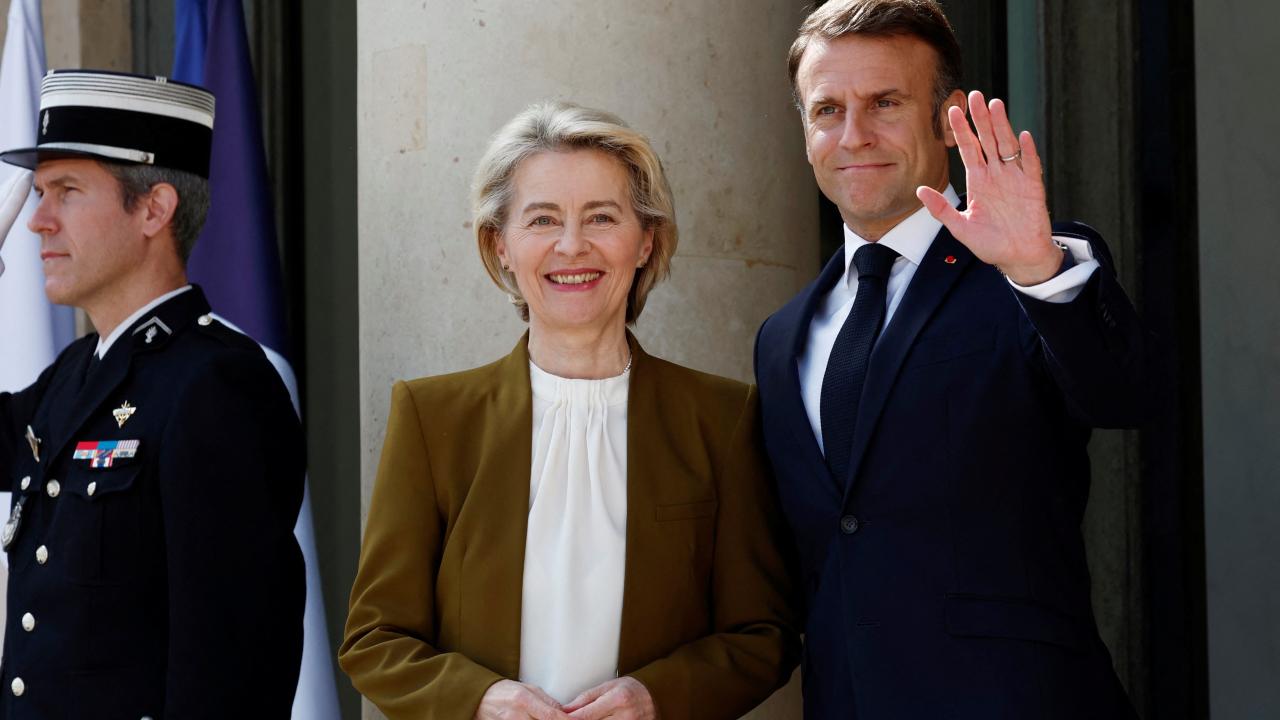
The European Union's executive branch has refused to clarify whether Von der Leyen has spoken by telephone with other European heads of state and government during her trip to the Mercosur summit.
French President Emmanuel Macron told European Commission chief Ursula Von der Leyen on Thursday that a potential EU-Mercosur trade deal is "unacceptable" in its current state, just hours before the start of a key summit in Montevideo.
"We will continue to tirelessly defend our agricultural sovereignty," stressed the Elysée, which revealed the call between Macron and Von der Leyen once the latter's arrival in the Uruguayan capital was confirmed.
The President of the European Commission is seeking to give a final push to close the agreement after 25 years of negotiations and a first agreement that failed in 2019.
The EU executive has refused to clarify whether Von der Leyen has spoken by telephone with other European heads of state and government during her trip to the Mercosur summit, limiting itself to stating that German policy "is always in contact with the leaders."
France, now mired in a political crisis following the fall of Michel Barnier's government, has been the biggest opponent of the pact since the start of negotiations with Mercosur for fear of its impact on French farmers, but in recent years it has focused its fight on the lack of commitment of Brazil and the rest of the Southern Cone partners to the Paris climate agreement and to combat deforestation.
Brussels, for its part, insists on reminding the French government that it is the European Commission that has the "exclusive competence" to negotiate EU trade agreements with other regions and its Trade spokesman, Olof Gill, stressed this Thursday in a press conference that the talks with Mercosur are based on a "negotiating mandate approved unanimously by the Council, including by France."
If the negotiations at the highest political level to be held in the next few hours in Montevideo allow a final agreement to be reached this Friday, it will be time for the community services to take the next step to assess the legal basis of the Treaty and how it should be presented to the Twenty-Seven for adoption.
Although the European Commission remains completely silent on the declaration it is negotiating to attach to the 2019 agreement and also on the legal basis it is studying, it is assumed among the Member States and the European Parliament - which has criticised the lack of transparency - that the agreement will be "cut up" to avoid the commercial part needing the approval of the 27 national parliaments.
This option would allow the agreement to enter into force with the support of a qualified majority in the Council, that is, despite the opposition of France if it does not have a blocking minority.
In the last debate at ministerial level, last week in Brussels, it became clear that there is a sufficient majority - with Spain and Germany at the forefront - to push through the agreement in the Council, according to various European sources, although it remains to be seen whether consensus should be sought for a Treaty of this magnitude.
In addition to France's firm rejection, other delegations such as Austria, the Netherlands, Poland and Ireland have reservations, although they have not vetoed the measure.










